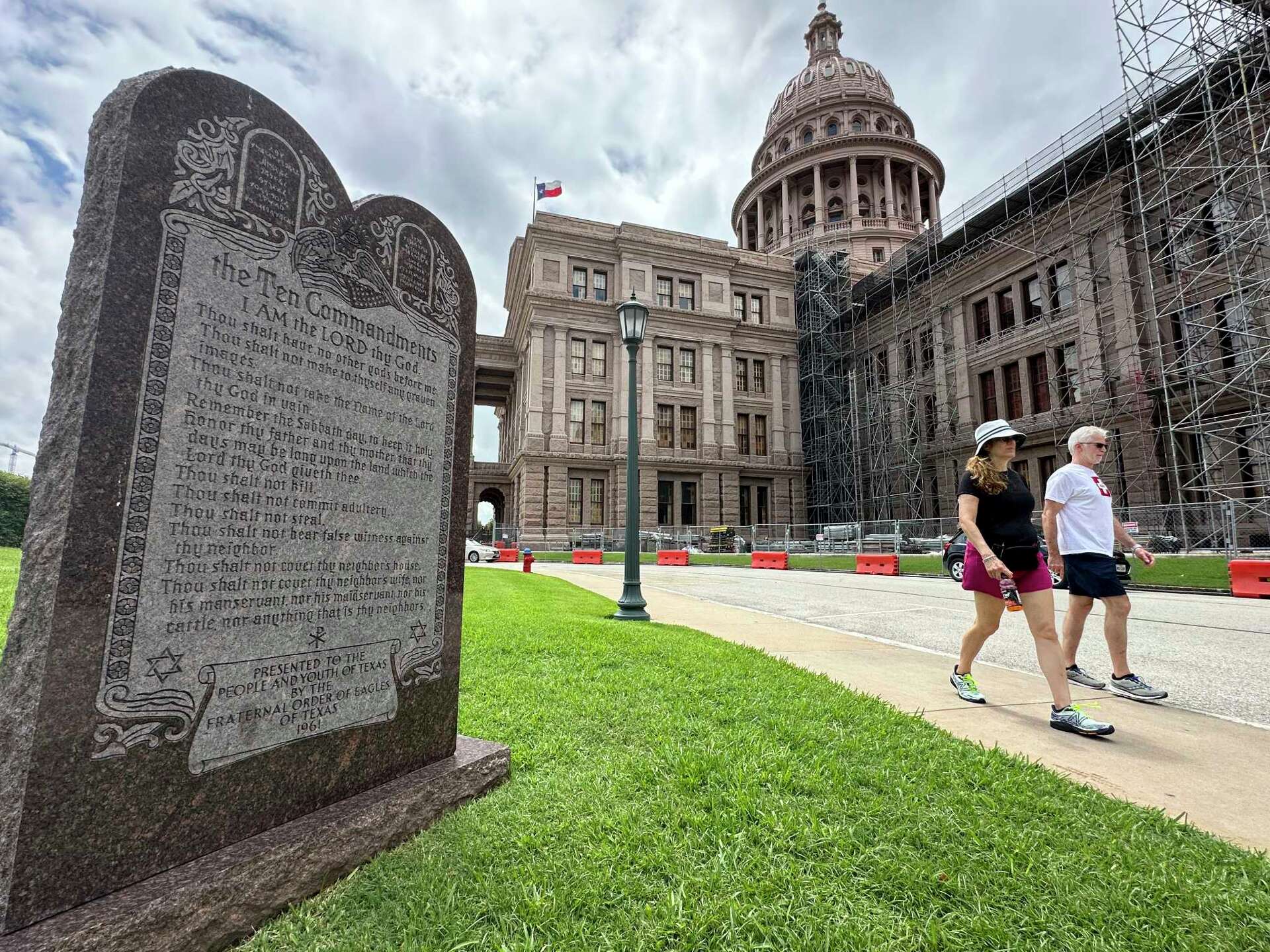Federal Judge in San Antonio Blocks Texas Law Requiring Ten Commandments Displays in Schools
Judge Rules the Law Unconstitutional
A federal judge in San Antonio has blocked a new Texas law that would have required all public schools to display posters of the Ten Commandments in every classroom beginning September 1. The ruling came from U.S. District Judge Fred Biery, who determined the legislation was unconstitutional and coercive in nature.
In a 55-page decision issued after extensive hearings, Judge Biery stated that forcing students to view a state-approved Christian version of the biblical document violates the constitutional principles set forth by the nation’s founders.
A Strong Statement from the Court
In his conclusion, Judge Biery addressed those who might oppose his decision, writing that threats, vulgarity, and violence would not change the constitutional foundation of the ruling. He closed his remarks by calling for reconciliation and peace among people of all faiths and beliefs.
Expected Appeal and Wider Legal Context
The case is expected to be appealed to the Fifth Circuit Court of Appeals. At least two other lawsuits involving similar laws in different states are currently making their way through the court system.
Judge Biery cited the First Amendment of the U.S. Constitution, which prohibits the establishment of religion by the government and protects the free exercise of religion. He emphasized that the separation between religion and state was made clear by the nation’s founders.
Arguments for and Against the Law
The law required classrooms to display the Ten Commandments, which biblical tradition describes as the principles given to Moses on Mount Sinai. Supporters of the law argued that these commandments form the foundation of America’s legal system.
Opponents, however, included parents from Jewish, Christian, Unitarian Universalist, Hindu, and non-religious backgrounds, who maintained that the law was unconstitutional. They argued it imposed one religious tradition on students of many different faiths or those without religious affiliation.
One of the plaintiffs, Rabbi Mara Nathan of Temple Beth-El in San Antonio, filed the lawsuit on behalf of herself and her child. She stated that the Christian version of the Ten Commandments is different from what her Jewish faith recognizes, making the mandate discriminatory and exclusionary.
Reactions from Both Sides
After the ruling, attorneys for the plaintiffs expressed satisfaction with the court’s decision, describing it as thoughtful and comprehensive. They emphasized that the ruling addressed all the concerns presented during the two days of hearings.
On the other hand, Texas officials vowed to appeal the decision. They argued that the Ten Commandments are a cornerstone of moral and legal tradition and that their presence in classrooms would remind students of foundational civic values.
Legal Precedents and Broader Implications
Judge Biery referenced multiple U.S. Supreme Court cases where previous attempts to display the Ten Commandments in public schools were struck down. He highlighted the complexities that arise when government institutions endorse specific religious teachings, questioning which religious texts or practices would be favored if such laws were upheld.
His ruling raised broader concerns, asking whether public schools would eventually be required to observe religious practices from different faiths and what that would mean for religious freedom in a diverse society.
Impact on Texas School Districts
Some Texas school districts, including Northside Independent School District in San Antonio, had prepared to print posters of the Ten Commandments for their classrooms but put those plans on hold due to the ongoing legal challenges. The district, which serves nearly 100,000 students, confirmed that no posters have been placed in classrooms while the matter remains unsettled in court.
Looking Ahead
As the legal battle continues, the case underscores the ongoing debate over religion’s role in public schools and the constitutional protections that safeguard religious freedom. The appeal process is expected to draw significant attention, with the potential to shape how similar laws across the country are judged in the years ahead.

COMMENTS (0)
Sign in to join the conversation
LOGIN TO COMMENT